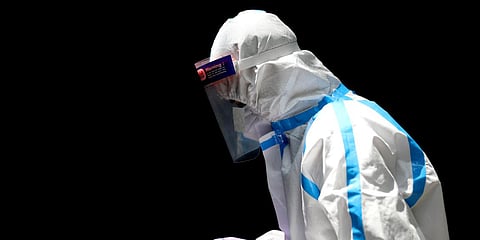

NEW DELHI: An infant born to a mother, who was earlier diagnosed with the COVID-19 but turned negative before the delivery at Ram Manohar Lohia Hospital, has tested positive for the virus. The infant’s result came on Thursday.
Doctors at the RML Hospital claimed that it was the world’s first case of transmission of the coronavirus in foetus.
Earlier, there had been cases where newborn got infected with the virus from the mother who had given delivery while being a positive patient. The mother, who is 24-year-old, first tested positive on June 11. She was again tested on June 25, when her report came positive. She was tested for the third time on July 7 when the report came negative.
“The baby was delivered on July 8 around 8.50 pm. It was a normal delivery. After six hours, the newborn was tested via RT-PCR, and the next day, the report came positive. The baby is doing fine and has not shown any symptoms. Another test will be conducted on the newborn after 48 hours,” said Dr Rahul Choudhary, an assistant professor at the department of neonatology, RML Hospital.
“The recovered COVID-19 positive mother delivered a baby with high SARS COV-2 viral load detected by RT-PCR,” said Dr Kirti, an assistant professor of microbiology at the hospital. Dr Choudhary added that there was no scope of any other external exposure from where the infant could have got infected.
“The baby, after the birth, was immediately shifted to the National Injury Surveillance, NISC. There was no contact even with the mother. It is most likely that the baby got infected when the mother was in her third trimester via placenta,” he added.
What recent study says
A research by University of Milan found that in-vitro transmission is possible and a virus was found in an at-term placenta, umbilical cord, the vagina of one woman and in breast milk.